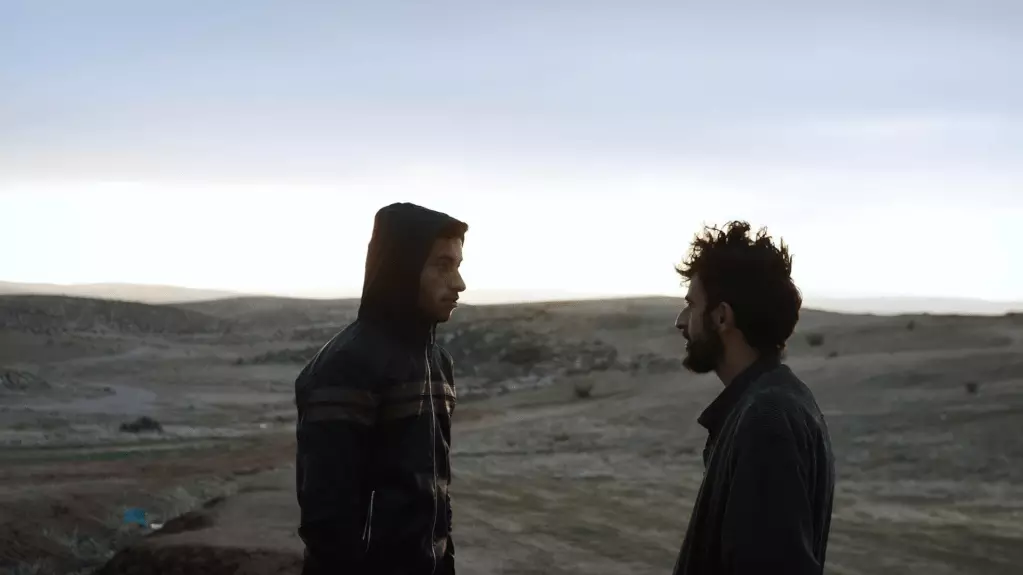The documentary landscape is currently echoing with narratives that delve deep into the human experience, compelling us to reflect on our social, cultural, and political realities. A standout example is *No Other Land*, which recently premiered at the Film Forum in New York. This Academy Award-nominated documentary, crafted by a collaborative team of Palestinian and Israeli filmmakers, poignantly confronts the complex heritage of conflict in the Middle East while also shedding light on the resilience of the human spirit.
*No Other Land* is notable not only for its content but for its creators. Basel Adra, Hamdan Ballal, Yuval Abraham, and Rachel Szor bring unique perspectives that cut across cultural borders, offering viewers an intricate portrayal of life in the West Bank. The film is the result of a grassroots effort to document the slow and painful disintegration of the community in Masafer Yatta, affronted by the Israeli military’s encroachment. Over a five-year span, Adra captures the essence of daily life amidst turmoil—recording the destruction of homes, schools, and shared spaces. His lens not only preserves the physical remnants of a community but also encapsulates the emotional weight carried by its residents.
Yuval Abraham’s role as an Israeli journalist complements Adra’s work, creating a dynamic that bridges their differing realities. His ability to navigate bureaucratic restrictions gives him access to larger platforms, allowing their shared narrative to resonate beyond their local context. The bond formed between the two challenges preconceived notions about friendship and collaboration in the midst of political strife. It portrays an often-missed narrative; the quest for common humanity amongst entrenched divisions.
The timing of *No Other Land’s* release adds another layer of poignancy. Debuting during an ongoing ceasefire amidst heightened tensions between Israel and Hamas, the film compels viewers to consider the roots of hostility that lead to such brutal conflicts. The filmmakers aim not solely to reflect on current events but to articulate the long-overdue histories that precede them. By tackling the fundamental causes of animosity, they urge audiences to confront uncomfortable truths about colonialism, displacement, and resilience.
This docu-narrative is receiving unprecedented acclaim; holding a solid approval rating on critical platforms indicates a broad recognition of its importance in the dialogue surrounding the Israeli-Palestinian conflict. Critics are lauding it for weaving personal stories with broader socio-political implications, making it a reference point in understanding contemporary realities.
In addition to *No Other Land*, the New York cinema landscape is graced with other intriguing titles that explore varying facets of identity and connection. *Love Me*, a feature debut by Sam and Andy Zuchero, takes a markedly different narrative route. Starring Kristen Stewart and Steven Yeun, this film addresses the themes of love and existence through a sci-fi lens, with its characters conversing in a realm where humanity no longer exists. This unique premise challenges viewers to contemplate the significance of love and self-discovery beyond temporal bounds, offering a poignant reflection on what it means to be alive.
Further diversifying the cinematic experience is *Marcello Mio*, an evocative examination of personal identity and familial legacy. Chiara Mastroianni’s heartfelt portrayal of her father serves as a deep exploration of nostalgia, grief, and the struggle of living in someone else’s shadow. The film cultivates a narrative rich with emotional truths that resonate with anyone who has struggled with personal identity and relationships.
Lastly, *This Woman* by Alan Zhang stands as a feminist exploration of societal expectations and individual agency. In the backdrop of the pandemic, it portrays the life of a woman reevaluating her existence and challenging the status quo, making it a profound meditation on self-realization amid chaos.
The proliferation of such documentaries signifies an urgent cultural need to address pressing social issues through the arts. These films not only entertain but also serve as a crucial medium for sparking conversations about identity, belonging, and human rights. As audiences engage with these stories, they are encouraged to confront their beliefs and assumptions about complex issues, ultimately becoming more informed and empathetic individuals.
The current documentary releases epitomize the potential of film to serve as a powerful tool for advocacy and education. By illuminating narratives that delve into the essence of human connection and struggle, they invite viewers not merely to watch but to connect, reflect, and perhaps even act in pursuit of understanding and justice in an often divided world.

